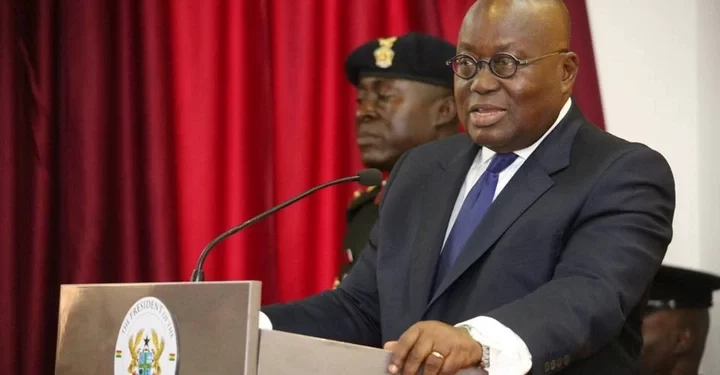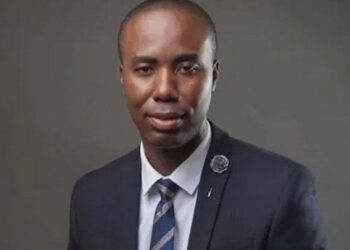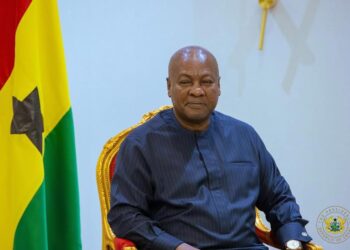It’s one government entity that has accumulated huge piled-up debts over the years. The current administration tried to find a way out the TOR debts crises. It first made it clear that it has no funds to resuscitate the ailing refinery company. Anyone posted to the company was therefore not under any illusion to raise the necessary funds all by himself, first to deal with its colossal debts and also to ensure that TOR becomes functional again.
Yet there are supposedly working staff at the refinery drawing salaries at the end of every month, virtually for no work done. Who pays the price in this instance? Of course it’s the Ghanaian tax-payer. The operations of TOR negate the original birthing right of the company. That’s to work, be self-sufficient in refined oil storage; pay their workers and also to help fund other development projects of government.
The administration thought there could be a way out of the TOR mess. So when the TOR rebuilding lot was cast, it fell on Mr. Isaac Osei as the ailing company’s new Chief Executive Officer (CEO). Before Ambassador Isaac Osei, other prominent Ghanaians with the required expertise like Alex Mould and Dr. Kwabena Kodua Sarpong, currently, the CEO of Ghana National Petroleum Corporation (GNPC)had stints with the refinery as CEOs.
TOR was built by the first Republican administration to refine crude oil imported into Ghana for both immediate use and storage. It was a vision of the first Ghanaian President to make Ghana self-sufficient in crude oil and of course, to lead the way in the sub-region; and perhaps the whole of Africa.
Nkrumah’s vison was torpedoed after his overthrow in 1966. Unfortunately, his military successors abandoned almost every of Nkrumah’s projects to rot away in the bushes. And the TOR was one of such projects. Military Head of State, General Kutu Acheampong, did little to bring back TOR, although it was part of his priority wish to resuscitate the refinery to its fullest capacity.
Since then, all other successive governments have failed in their efforts to restore TOR to its original status. Will the Akufo Addo administration be the exception? Many of his followers thought the TOR malaise was curable under Nana. Therefore, the immediate task of Isaac Osei was to engineer funds to restore TOR back to its lost glory.
It was made clear to him by the President that Ghana had no money to fund the re-fitting of the TOR. Isaac Osei obliged the President’s challenge to bring back TOR on its feet by engineering funds all by himself to safe the refinery. He moved with his reforms; but was confronted by an institutional mess that had in past affected the performance of other CEOs of the company.
There are people who had instituted themselves to be the “owners” of the national refinery. They don’t get it wrong; they are untouchable; they undermine any CEO who attempts to halt them in their dubious works. It’s not easy to remove or get them dismissed. They had the expertise that you often would not get people that easily to replace them.
Their expert kind is not easy to identify on the market. They also have a way of hoodwinking or black-mailing any government of the day and officials also fall to their ploy. All such machinations could go on without the work being done. And when Isaac Osei wanted to stamp his authority, he was given all sorts of names; reported to the President for none performance.
Out of frustrations, he willingly resigned from TOR. Isaac Osei may be gone, yet the TOR crises still loom with its wider ramifications being felt on the Ghanaian economy. What’s more sickening is the fact that these so-called workers are earning their salaries for no work done. Is that the way to revamp TOR? They are rather a major drain to the company and by extension to the national economy.
It’s one government entity that has accumulated huge piled-up debts over the years. The current administration tried to find a way out the TOR debts crises. It first made it clear that it has no funds to resuscitate the ailing refinery company. Anyone posted to the company was therefore not under any illusion to raise the necessary funds all by himself, first to deal with its colossal debts and also to ensure that TOR becomes functional again.
Yet there are supposedly working staff at the refinery drawing salaries at the end of every month, virtually for no work done. Who pays the price in this instance? Of course it’s the Ghanaian tax-payer. The operations of TOR negate the original birthing right of the company. That’s to work, be self-sufficient in refined oil storage; pay their workers and also to help fund other development projects of government.
The administration thought there could be a way out of the TOR mess. So when the TOR rebuilding lot was cast, it fell on Mr. Isaac Osei as the ailing company’s new Chief Executive Officer (CEO). Before Ambassador Isaac Osei, other prominent Ghanaians with the required expertise like Alex Mould and Dr. Kwabena Kodua Sarpong, currently, the CEO of Ghana National Petroleum Corporation (GNPC)had stints with the refinery as CEOs.
TOR was built by the first Republican administration to refine crude oil imported into Ghana for both immediate use and storage. It was a vision of the first Ghanaian President to make Ghana self-sufficient in crude oil and of course, to lead the way in the sub-region; and perhaps the whole of Africa.
Nkrumah’s vison was torpedoed after his overthrow in 1966. Unfortunately, his military successors abandoned almost every of Nkrumah’s projects to rot away in the bushes. And the TOR was one of such projects. Military Head of State, General Kutu Acheampong, did little to bring back TOR, although it was part of his priority wish to resuscitate the refinery to its fullest capacity.
Since then, all other successive governments have failed in their efforts to restore TOR to its original status. Will the Akufo Addo administration be the exception? Many of his followers thought the TOR malaise was curable under Nana. Therefore, the immediate task of Isaac Osei was to engineer funds to restore TOR back to its lost glory.
It was made clear to him by the President that Ghana had no money to fund the re-fitting of the TOR. Isaac Osei obliged the President’s challenge to bring back TOR on its feet by engineering funds all by himself to safe the refinery. He moved with his reforms; but was confronted by an institutional mess that had in past affected the performance of other CEOs of the company.
There are people who had instituted themselves to be the “owners” of the national refinery. They don’t get it wrong; they are untouchable; they undermine any CEO who attempts to halt them in their dubious works. It’s not easy to remove or get them dismissed. They had the expertise that you often would not get people that easily to replace them.
Their expert kind is not easy to identify on the market. They also have a way of hoodwinking or black-mailing any government of the day and officials also fall to their ploy. All such machinations could go on without the work being done. And when Isaac Osei wanted to stamp his authority, he was given all sorts of names; reported to the President for none performance.
Out of frustrations, he willingly resigned from TOR. Isaac Osei may be gone, yet the TOR crises still loom with its wider ramifications being felt on the Ghanaian economy. What’s more sickening is the fact that these so-called workers are earning their salaries for no work done. Is that the way to revamp TOR? They are rather a major drain to the company and by extension to the national economy.
It’s one government entity that has accumulated huge piled-up debts over the years. The current administration tried to find a way out the TOR debts crises. It first made it clear that it has no funds to resuscitate the ailing refinery company. Anyone posted to the company was therefore not under any illusion to raise the necessary funds all by himself, first to deal with its colossal debts and also to ensure that TOR becomes functional again.
Yet there are supposedly working staff at the refinery drawing salaries at the end of every month, virtually for no work done. Who pays the price in this instance? Of course it’s the Ghanaian tax-payer. The operations of TOR negate the original birthing right of the company. That’s to work, be self-sufficient in refined oil storage; pay their workers and also to help fund other development projects of government.
The administration thought there could be a way out of the TOR mess. So when the TOR rebuilding lot was cast, it fell on Mr. Isaac Osei as the ailing company’s new Chief Executive Officer (CEO). Before Ambassador Isaac Osei, other prominent Ghanaians with the required expertise like Alex Mould and Dr. Kwabena Kodua Sarpong, currently, the CEO of Ghana National Petroleum Corporation (GNPC)had stints with the refinery as CEOs.
TOR was built by the first Republican administration to refine crude oil imported into Ghana for both immediate use and storage. It was a vision of the first Ghanaian President to make Ghana self-sufficient in crude oil and of course, to lead the way in the sub-region; and perhaps the whole of Africa.
Nkrumah’s vison was torpedoed after his overthrow in 1966. Unfortunately, his military successors abandoned almost every of Nkrumah’s projects to rot away in the bushes. And the TOR was one of such projects. Military Head of State, General Kutu Acheampong, did little to bring back TOR, although it was part of his priority wish to resuscitate the refinery to its fullest capacity.
Since then, all other successive governments have failed in their efforts to restore TOR to its original status. Will the Akufo Addo administration be the exception? Many of his followers thought the TOR malaise was curable under Nana. Therefore, the immediate task of Isaac Osei was to engineer funds to restore TOR back to its lost glory.
It was made clear to him by the President that Ghana had no money to fund the re-fitting of the TOR. Isaac Osei obliged the President’s challenge to bring back TOR on its feet by engineering funds all by himself to safe the refinery. He moved with his reforms; but was confronted by an institutional mess that had in past affected the performance of other CEOs of the company.
There are people who had instituted themselves to be the “owners” of the national refinery. They don’t get it wrong; they are untouchable; they undermine any CEO who attempts to halt them in their dubious works. It’s not easy to remove or get them dismissed. They had the expertise that you often would not get people that easily to replace them.
Their expert kind is not easy to identify on the market. They also have a way of hoodwinking or black-mailing any government of the day and officials also fall to their ploy. All such machinations could go on without the work being done. And when Isaac Osei wanted to stamp his authority, he was given all sorts of names; reported to the President for none performance.
Out of frustrations, he willingly resigned from TOR. Isaac Osei may be gone, yet the TOR crises still loom with its wider ramifications being felt on the Ghanaian economy. What’s more sickening is the fact that these so-called workers are earning their salaries for no work done. Is that the way to revamp TOR? They are rather a major drain to the company and by extension to the national economy.
It’s one government entity that has accumulated huge piled-up debts over the years. The current administration tried to find a way out the TOR debts crises. It first made it clear that it has no funds to resuscitate the ailing refinery company. Anyone posted to the company was therefore not under any illusion to raise the necessary funds all by himself, first to deal with its colossal debts and also to ensure that TOR becomes functional again.
Yet there are supposedly working staff at the refinery drawing salaries at the end of every month, virtually for no work done. Who pays the price in this instance? Of course it’s the Ghanaian tax-payer. The operations of TOR negate the original birthing right of the company. That’s to work, be self-sufficient in refined oil storage; pay their workers and also to help fund other development projects of government.
The administration thought there could be a way out of the TOR mess. So when the TOR rebuilding lot was cast, it fell on Mr. Isaac Osei as the ailing company’s new Chief Executive Officer (CEO). Before Ambassador Isaac Osei, other prominent Ghanaians with the required expertise like Alex Mould and Dr. Kwabena Kodua Sarpong, currently, the CEO of Ghana National Petroleum Corporation (GNPC)had stints with the refinery as CEOs.
TOR was built by the first Republican administration to refine crude oil imported into Ghana for both immediate use and storage. It was a vision of the first Ghanaian President to make Ghana self-sufficient in crude oil and of course, to lead the way in the sub-region; and perhaps the whole of Africa.
Nkrumah’s vison was torpedoed after his overthrow in 1966. Unfortunately, his military successors abandoned almost every of Nkrumah’s projects to rot away in the bushes. And the TOR was one of such projects. Military Head of State, General Kutu Acheampong, did little to bring back TOR, although it was part of his priority wish to resuscitate the refinery to its fullest capacity.
Since then, all other successive governments have failed in their efforts to restore TOR to its original status. Will the Akufo Addo administration be the exception? Many of his followers thought the TOR malaise was curable under Nana. Therefore, the immediate task of Isaac Osei was to engineer funds to restore TOR back to its lost glory.
It was made clear to him by the President that Ghana had no money to fund the re-fitting of the TOR. Isaac Osei obliged the President’s challenge to bring back TOR on its feet by engineering funds all by himself to safe the refinery. He moved with his reforms; but was confronted by an institutional mess that had in past affected the performance of other CEOs of the company.
There are people who had instituted themselves to be the “owners” of the national refinery. They don’t get it wrong; they are untouchable; they undermine any CEO who attempts to halt them in their dubious works. It’s not easy to remove or get them dismissed. They had the expertise that you often would not get people that easily to replace them.
Their expert kind is not easy to identify on the market. They also have a way of hoodwinking or black-mailing any government of the day and officials also fall to their ploy. All such machinations could go on without the work being done. And when Isaac Osei wanted to stamp his authority, he was given all sorts of names; reported to the President for none performance.
Out of frustrations, he willingly resigned from TOR. Isaac Osei may be gone, yet the TOR crises still loom with its wider ramifications being felt on the Ghanaian economy. What’s more sickening is the fact that these so-called workers are earning their salaries for no work done. Is that the way to revamp TOR? They are rather a major drain to the company and by extension to the national economy.










Discussion about this post